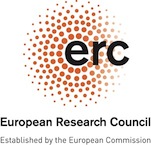
Job reference: D1169R
Salary: £27,578 - £35,938
Closing date: 31 August 2013
On-line application: follow this web link to apply; also please send your CV and a brief cover letter to feng.hao@ncl.ac.uk.
This project is sponsored by the European Research Council (ERC) Starting Grant and it supports three RA posts for five years. In a previous job advertisement, two posts have been filled; we are looking for the third RA to join us. The post is available immediately (starting date flexible). The initial appointment will be three years; further extension will be possible subject to the performance and available funding.
You will join a vibrant and growing team of security researchers at the Centre for Cybercrime and Computer Security (CCCS) at Newcastle University. The aim of the project is to address one of the grand challenges in the real world: how to develop an e-voting system that is secure, dependable and usable for future elections.
Verifiable e-voting schemes use cryptography to provide End-to-End (E2E) verifiability of the tallying results while protecting the voters' privacy. They are widely seen as the state-of-the-art technology in the field and the hope for more secure elections in the future.
However, the idea of verifiable e-voting is not new; in fact it has existed for over twenty years. In the past two decades, many verifiable voting systems have been proposed, yet few of them have actually been implemented in practice, and almost none have been widely used in real-world elections.
Existing verifiable e-voting schemes universally rely on a set of trustworthy tallying authorities to perform decryption and tallying functions. This is similar to the physical voting where trusted authorities are generally needed to administer the tallying process. In the e-voting context, the assumed tallying authorities are essentially cryptographers and computer experts. However, finding such authorities proves not easy in reality.
Our pilot research has demonstrated that the universally assumed role of tallying authorities in verifiable e-voting is not entirely necessary. We call the resultant authority-free system as "self-enforcing e-voting" (see Hao, Randell, Clarke, SPW'12). This goes beyond all proposed or currently existing e-voting schemes. Contrary to the popular belief that e-voting is just an electronic equivalent of physical voting, our work indicates that electronic voting is actually a new paradigm of the voting technology. Further research in this area is urgently needed, with fresh new angles, new mindsets, new insights, new techniques and new understanding of social, legal and economic implications of e-voting. There will be great challenges ahead, but also great opportunities to make real-world impact.
We welcome any interested researcher with an excellent track record to join us and work together on this fascinating field. To apply for this post, you need to have a PhD in Computer Science, engineering or a related discipline, with a solid background in security. Expertise in one of the following areas is especially desirable: cryptography, dependability and usable security. Researchers with working experience in industry are encouraged to apply.
An ideal candidate would be the one who 1) has good understanding of theory; 2) has good practical skills; 3) has a keen interest to tackle real-world problems.
Contact for any inquiries: feng.hao@ncl.ac.uk